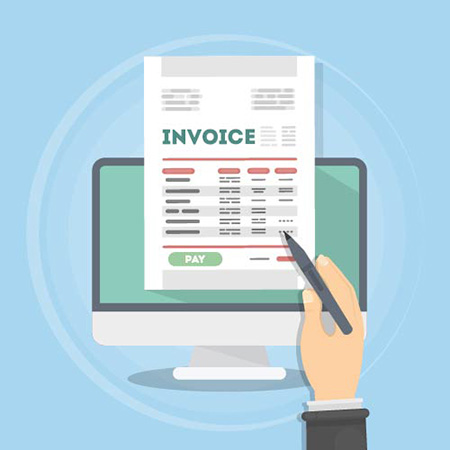Small Business: Reducing the risks associated with temp staff

Are your temporary employees fraudsters in disguise? In this article, we help you to understand and reduce the risks of temporary hires.
Whether it is hiring more baristas, cashiers, or security personal, SMEs often require extra pairs of hands at certain times of the year, such as during the summer months and during the festive season in November and December.
The four weeks leading to Christmas are particularly intense for retailers and eCommerce site owners. Constant streams of sale hunters and shoppers fuel sales and get the cash register ringing, to cope with increased demand, business owners often turn to temporary or seasonal employees. However, doing so brings potential risks that small businesses must be aware of.
What are the risks of hiring temporary staff?
Poor loyalty and performance – Often tied to a fixed-date employment contract, temps may lack the loyalty and dedication of permanent employees. With a leave date in a few weeks’ time, temps are less likely to take pride in their work and may perform poorly. As a result, they can become a liability.
Undertrained staff – Temps require training in order to fulfil their job function. Incomplete or poor training leaves temps unable to meet the required standards and therefore, reflects poorly on your company.
Illegal workers – Never rush the hiring process. With the influx of illegal immigrants in the news, businesses in London must ensure that they only employ those with a right to work in the UK to prevent company losses and bad press. Businesses can be charged up to £20,000 per illegal worker under their employment, which can be devastating and hurt your bottom line.
Internal fraud – Small business owners must understand the danger of internal fraud. Fraudsters can pose as temporary employees in order to steal your inventory or to access business data for their own financial gain.
Those seeking to infiltrate businesses in the disguise of a temporary employee pose a serious risk to all businesses looking to hire. According to Action Fraud, internal fraud cost UK businesses £88 million between 2017-18, double the figure for the year before.
Why are small businesses particularly vulnerable to internal fraud?
Often lacking resolute accounting controls, effective anti-fraud measures, suitable technology and enough staff to split financial duties evenly, SMEs present a natural target for fraudsters to make a quick buck by deceiving the owners and employees. Their tricks include:
- Tricking the company into paying them a large sum of money by using fake invoices or a fraudulent identity.
- Stealing stocks. They may after high-value items or items that are small and easy to conceal.
- Stealing sensitive data and sell them on the black market.
- Taking control of the system remotely and ask for ransom.
When it comes to accounting fraud, business owners also need to keep a lookout for:
- Billing fraud – creating false payments to oneself.
- Cash theft – pocketing the money instead of registering cash transactions.
- Expense reimbursement fraud – claiming embellished or false expenses.
- Bribes and kickbacks – paying others for company information or favours.
How to reduce the risks of temporary hires
As a small business owner, you can take steps to reduce the risk of hiring temporary staff and keep your business safe.
1. Pre-employment background screening
Screening potential employees reduces the chance of hiring criminals or fraudsters. Don’t cut corners – it’s crucial that employers screen temps as if they are applying for a full-time position. We recommend you:
- Run a DBS check to check for criminal records. Go to the gov.uk website for more information on these.
- Obtain references from previous employment.
- Interview each candidate thoroughly.
- Use a DISC (Dominance, Influence, Steadiness and Compliance) personality test which can help to reveal typical behaviour.
2. Hire from current employee referrals
Hiring temps recommended by current employees can minimise the risk of hiring fraudsters or incompetent workers. However, this can only work if your existing employees are trustworthy. Another option is to re-hire former reliable temps.
3. Provide complete training
Training temps well reduces the risk of incompetent workers in your business and enables them to perform as required, helping your business survive the seasonal demand.
4. Withhold access to important company information
Restrict access to data and stocks. Temporary employees should not be given access to the same sensitive business data as senior executives, only what they need to fulfil their job function.
5. Use Anti-Fraud measures
Small business owners must proactively look to prevent fraud and have a series of anti-fraud measures in place including:
- Employee training on how to stop fraud.
- A company handbook on fraud.
- A warning against fraud in temporary employment contracts, containing details of company expectations, as well as details of ‘fraud’, ‘theft’ and ‘bribery’ and the consequences of violating your terms.
- Reward whistleblowers who keep a lookout and report any internal fraud.
Tax Agility is here to help small businesses in London
Small businesses in London really feel the pressure during busy periods when business transactions are higher than normal. While our small business accountants may not be able to recruit temp staff for you, we can certainly relieve you from bookkeeping and accounting duties, giving you more time to focus on your business.
Give us a call on 020 8108 0090 if you need a helping hand on:
If you liked this article, you might also like:
This post is intended to provide information of general interest about current business issues. It should not replace professional advice tailored to your specific circumstances.
Small Business Saturday (7 December)

Supporting Small Business Saturday on 7 December 2019
With empty shops stand at a record high on our high street and in our neighbourhood, supporting the Small Business Saturday campaign has never been more critical. This year, we are doing our part to persuade small businesses across the UK to sign up for Small Business Saturday taking place on 7 December 2019. We are also encouraging residents to spend locally in independent shops.
Calling small business owners
If you run a small business, visit the smallbusinesssaturdayuk.com website to register and get listed on the Small Business Finder free of charge. You can also download the logo and marketing pack. If you have a plan for the day, share it with the organiser and they will announce it on their social media.
Calling shoppers
Use the Small Business Finder to find local shops near you and post photos of yourself supporting your local shops with #SmallBizSatUk. The smallbusinesssaturdayuk.com website also has a cook book which you can download.
Let us make a difference to support our local shops.
Limited Company or Umbrella Company – which is right for you?

If you’re looking for a career change and have decided to work for yourself, Tax Agility’s accountants can advise you on the best contracting option for your business.
Before starting out as a freelancer or contractor, it’s worth taking some time to decide if you should set-up a limited company or register with an umbrella company.
Deciding which route to take often comes down to your requirements, the level of control you want, your long-term business strategy and the type of operations that you'll be undertaking.
At Tax Agility, we believe that there is no right or wrong decision when it comes to choosing between a limited and an umbrella company. If in doubt, our expert accountants for contractors can help you understand what your business requires to determine the best course of action for you. With years of experience in helping contractors across London, we can provide you with solid guidance and advice so that you can make an informed decision.
Contracting through a limited company
A limited company is a type of business whose legal standing is independent of its shareholders and directors. Setting up a limited liability company can take only a few hours. It involves choosing a name for your company, submitting the required documentation to Companies House, and registering with them once the documents have been approved.
Setting up your own limited company means that you are in control, and your personal finances will be separate from your company’s finances. In the event that something goes wrong with your company, your personal finances will not likely to be affected. However, it is also important to understand that setting up a limited company means that you will be in charge of managing your administrative and legal obligations for the company.
Is a limited company the right option for you?
If you are planning on contracting for a long period of time, a limited company could be the most tax-efficient way of working – as it allows you to claim various expenses and pay yourself a combination of salary and dividends (a sum of money that a limited company pays out to someone who owns shares in the company, i.e. a shareholder) to benefit from the tax free allowances available to each. You can also make tax-free pension contributions through the company and leave funds within the business to grow and expand.
On the other hand, a limited company is costly to set-up (more so than registering with an umbrella company). Also, there is some administration involved in running a limited company even with an accountant for contractors supporting you. For example, you will need to keep track of your income and expenses, such as receipts and invoices, as the information is required for the submission of your year-end accounts and tax returns.
It is worth noting that if you fall within the IR35 legislation, the tax benefits of a limited company will completely disappear. IR35 is a tax legislation that is designed to combat tax avoidance by workers supplying their services to clients via an intermediary, such as a limited company, but who would be an employee if the intermediary were not used. By falling on the wrong side of IR35 due to your working arrangements, you can end up paying tax and National Insurance at the same rate as a permanent employee. To understand more about the IR35 legislation, you can check out this post, What does IR35 legislation mean?
Contracting under an umbrella company
Contracting under an umbrella company means that you are considered an employee of the umbrella company. You will need to submit timesheets to the umbrella company which will then invoice the end client or agency for the work that you have completed. In terms of salary, you will be paid as a PAYE (Pay As You Earn) employee minus the umbrella fee, which the company will charge each time you receive a payment. Contractors who prefer no administrative duties generally favour this type of contracting route.
Is an umbrella company the right option for you?
An umbrella company frees you of all the administrative and financial responsibilities that come with being a contractor, meaning that you don’t have to manage or pay your taxes or National Insurance, allowing you to focus on your work.
You will work under a form of employment contract, which still guarantees you the benefits offered to permanent employees, such as holidays, sick leave, maternity and paternity pay.
However, the biggest disadvantage of working with an umbrella company is that they charge a substantial sum of administrative fee, as they take care of your timesheets, billings, PAYE and National Insurance. As such, this option is only suitable for contractors who are new to contracting or work on short-term contracts.
Tax Agility accountants for contractors
Before taking the leap into contracting, contact one of Tax Agility’s specialist accountants for contractors and discuss the options that are best for you given your individual circumstances.
It is also worth checking out these pages written specifically for contractors:
If you choose to set-up a limited company, we will work with you to ensure that you understand what is required of you in terms of your financial and tax obligations, so that we can try to maximise efficiency and minimise your tax obligation where possible. We can also assist you with registering with Companies House, and subsequently, assist you in bookkeeping and accounts so you can concentrate on your business.
If you are already a contractor and want to increase your take-home pay, need assistance with adhering to regulations (such as IR35), or help with your ongoing accounts and bookkeeping, contact us today on 020 8108 0090 or get in touch via our contact us page to arrange a complimentary, no obligation meeting.
If you found this interesting, you might also enjoy:
- How to lighten your workload as a contractor
- How contractors should invoice for expenses
- Business expenses you can claim as an IT contractor
This post is intended to provide information of general interest about current business/ accounting issues. It should not replace professional advice tailored to your specific circumstances.
Your guide to bullying and harassment in the workplace

Next week, November 11 to 15, is the anti-bullying week, so let’s use this opportunity to promote a safe workplace. The theme for this year is “Change starts with us”.
Bullying and harassment both refer to ‘unwanted behaviour that makes someone feel intimidated, degraded, humiliated or offended’, according to Acas (The Advisory, Conciliation and Arbitration Service). It can be obvious or subtle, persistent or isolated, between individuals or groups. It can also take many forms:
- Face-to-face
- By letter
- By email
- By phone
However, business owners must understand that there is a slight legal difference between bullying and harassment.
What is bullying?
Acas defines bullying as offensive, intimidating, malicious or insulting behaviour, an abuse or misuse of power through means that undermine, humiliate, denigrate or injure the recipient. In any business, all employees are responsible for ensuring that their behaviour does not fall into this category.
Bullying itself is not against the law, but nevertheless must be reported. It is said that one in four employees have experienced bullying or been made to feel out of place at work. These negative experiences at work often lead to stress and pressure. Accordingly, it is crucial that small business owners understand the severity of the problem and have a clear and rigorous policy in place to combat bullying and harassment in the workplace. To promote a bully-free workplace, look for the following signs of bullying:
- Someone has spread malicious rumours about certain team members.
- Someone has been treated unfairly.
- Someone continuously picks on or regularly undermines another person.
- Someone has denied other’s training or promotion opportunities.
What is harassment?
Harassment violates the Equality Act 2010, which defines it as ‘Unwanted conduct related to a relevant protected characteristic, which has the purpose or effect of violating an individual’s dignity or creating an intimidating, hostile, degrading, humiliating or offensive environment for that individual.’
Harassment is extremely personal. HMRC characterises harassment as behaviour relating to the following:
- Age
- Sex
- Disability
- Gender reassignment
- Marriage and civil partnership
- Pregnancy and maternity
- Race
- Religion or belief
- Sexual orientation
Every business owner must be aware that because harassment violates the Equality Act 2010 and Health and Safety at Work Act 1974, it requires urgent resolution before it is being escalated to legal action.
Why small businesses may struggle to deal with bullying and harassment
Smaller businesses often face greater difficulty in successfully dealing with bullying and harassment claims than larger corporations for the following reasons:
- A lack of HR
Many small businesses lack the resources to employ a full-time HR department. Consequently, cases may go unreported as recipients of bullying and harassment may feel isolated, and perhaps afraid to speak to their managers.
- A lack of money
Should the case of harassment go to court, majority of small businesses cannot afford to pay the fees attached to legal cases. The troubles may lead them to shut down the company instead.
- Unclear policy on bullying and harassment
Small businesses are less likely to have a clear, formal policy on bullying and harassment than larger businesses.
What small business owners can do to promote a safe workplace
As a small business owner, you know first-hand that workplace bullying and harassment can lead to low morale and increased absenteeism, which in turn will lower productivity and hurt your bottom line.
To establish a high-performing team where everyone can contribute to business growth, there is no room for anyone to create hostility at work. For small business owners looking to foster a safe and effective workplace, here are a few things you can consider:
- Have a clear statement that bullying and harassment will not be tolerated and deserve to be treated as disciplinary offences.
- Provide examples of unacceptable behaviour.
- Encourage your employees to report any incidences to management right away.
If you are unsure of how to respond to unwanted behaviour, please follow the guideline above or call the Acas helpline for advice:
Telephone: 0300 123 1100
Textphone: 18001 0300 123 1100
Monday to Friday, 8am to 6pm.
How to lighten your workload as a contractor

Here at Tax Agility, we believe that managing your financial affairs can be an extra hassle that contractors simply don’t need, which is why our specialist contractor accountants are on hand to lighten your workload and give you that work-life balance you deserve.
What is a contractor?
Contractors are self-employed individuals who have escaped ‘traditional’ company-dictated working hours by setting up a business for themselves. Contractors offer a specialised service to a wide range of clients. Some examples include writers, carpenters, builders and IT specialists.
Why does a contractor need an accountant?
Running a business means contractors need to market themselves, prepare quotations, fulfil contractual obligations, invoice clients, and also taking care of the administrative function and tax obligation. They are busy individuals who constantly juggling the stresses of multiple roles.
Concerningly, 44% of contractors who took part in a YouGov survey revealed they had missed a personal occasion due to work, while a staggering 10% said they missed their own birthday party due to their workload. A further 11% said that they had missed anniversaries.
Accounts and tax are areas that most contractors do not possess enough knowledge to complete the financial tasks required accurately and efficiently, and this is where an accountant for contractors comes in.
How can accountants help contractors?
Allowing accountants that specialise in helping contractors handle your finances will enable you to focus on growing your contracting business and put your mind at ease, with the assurance that a team of specialists are on the job.
At Tax Agility, our dedicated team of contractor accountants is perfectly placed to lighten the weight of financial administration on contractor’s shoulders. The areas we can assist include:
1. Find a company structure that is best for you
As a contractor, you can choose to set up a limited company or work under an umbrella company. Most contractors prefer to run their own limited company because it is tax-efficient. In this case, we will guide you through the necessary legal requirements and help you to understand your legal and financial responsibilities as a shareholder, director and employee.
2. Manage accounts and bookkeeping requirements
Assisting with bookkeeping, cash-flow forecasts, preparing your monthly management accounts, filing annual statutory, are just some of the tasks we can manage on behalf of you.
3. Contractor tax services
VAT, NI, PAYE, Self-Assessment tax returns, and using dividends to make up a portion of your income are tasks that we can help you with. If you would like to know more about dividends, check out this post "Understanding dividends".
4. IR35 support
IR35 is a mind-bogglingly complex issue that troubles many contractors as there is no definitive guideline that stipulates the conditions of a 'breach'. This means you can read as much about IR35 and still do not know if you are inside or outside the scope of IR35. The best approach is to contact an accountant for contractors like us and discuss your situations in detail.
5. Answer any questions you have
It is natural to ask questions when you run a contractor business. Questions such as should you (and can you) register for flat-rate VAT? What business expenses you can claim as an IT contractor? Can you put a family member on the payroll? - all of them are valid questions deserve honest answers from our accountants.
6. Keep you out of legal trouble
There are many tax deadlines associating with setting yourself up as a contractor and running a business; we can help you to submit all the necessary documents before the deadlines to avoid fines. Moreover, while we strongly believe in helping contractors being tax-efficient, we do not practice creative accounting that will raise questions from HMRC.
7. Peace of mind
With us working alongside you, you do not have to spend needless hours managing headache-inducing financial tasks. This means you can focus on matters that are important to you, like amplifying your business visibility and driving the success of your contracting business.
Tax Agility is here for contractors
With three offices across London - we are in Putney, Richmond and Central London, our team of accountants specialise in contractors can manage your accounts and financial tasks for you. To find out how we can help, call us today on 020 8108 0090 or get in touch with us via our contact page to arrange a complimentary, no-obligation meeting.
If you found this interesting, you may also enjoy:
- IT Contractor Tax: what do I have to pay?
- Tax planning tips for self-employed contractors
- Moving from permanent employee to full-time contractor
This post is intended to provide information of general interest about current business issues. It should not replace professional advice tailored to your specific circumstances.
How contractors should invoice for expenses

Knowing how to invoice for expenses when you first start out as a contractor, regardless of your profession, is crucial to ensure that you keep up a professional appearance and can breeze through the first few months of your contracting career.
As a contractor, you are likely to incur a few expenses when providing your services to clients. For example, you may need to travel and visit premises in another town (an expense which you incur), or you may need to purchase a piece of equipment on behalf of your client (a disbursement which you will invoice). To help you navigate the expense and disbursement process, our accountants for contractors in London at Tax Agility share three common methods that you are likely to encounter when invoices your clients for your expenses.
Adding VAT
Regarded as the simplest invoicing method, adding VAT involves charging VAT on any expenses you have incurred while working or carrying out your services for your clients, such as hotel stays, public transport expenses and mileage. In this case, you add the VAT regardless of whether or not you were charged VAT on these items in the first place.
For example, you performed £2,000 worth of work for your client and you incurred £40.00 in petrol cost due to driving out to an in-person meeting with your client (a cost they had agreed to reimburse), you would invoice them £2,448 and the breakdown is as follows:
- £2,000 for the work
- £40 for petrol cost
- £408 (20% VAT on £2,040)
Splitting VAT
In the event that your clients do not like the above method as they are paying VAT on the petrol cost twice, then you will need to remove any VAT you paid on expenses you claim back from them, then applying VAT to your final, gross invoice.
Let’s say you performed £2,000 worth of work for your client, and you also paid £1,200 (with VAT) for a training course which your client suggested you attend and promised to reimburse you for. In other words, the training cost is actually £1,000 + VAT £200.
In this case, you will invoice your client £3,600 and the breakdown is as follows:
- £3000 (£2,000 for the work + £1,000 for the training cost)
- £600 (20% VAT on £3,000)
Disbursement
Disbursement payments occur when you purchase something on behalf of your client and pass that cost over to them in your invoice. In this instance, you do not charge VAT on the items and you cannot claim back any VAT.
As explained by HMRC, there are various rules surrounding disbursement including:
- You paid the supplier on your client’s behalf and acted as the agent of your client.
- Your client received, used or had the benefit of the goods or services you paid for on their behalf.
- It was your client’s responsibility to pay for the goods or services.
- You had permission from your client to make the payment for the said goods or services.
- Your client knew that you were not the supplier of the goods or services.
- You show the costs separately on your invoice.
- You pass on the exact amount of each cost to your customer when you invoice them.
- The goods and services you paid for are in addition to the cost of your own services.
Here is an example: you performed £2,000 worth of work for your client and you incur £40 in petrol costs which the client would pay. To do the job, your client also asked you to purchase a piece of electronic (a Geiger counter worth £200) which they would need in the project. You will invoice £2,648 and the breakdown is as follows:
- £2,040 (£2,000 for the work done + £40 petrol expenses)
- £408 (VAT on £2,040)
- £200 (Geiger counter disbursement)
How can Tax Agility help contractors?
At Tax Agility, we understand that contractors are constantly juggling different tasks at once, which is why we want to step in and help. With the assistance of our dedicated accounting and tax services for contractors, you can focus on building your business while we manage your financial and tax affairs.
Our contractor tax and accounts services include:
- Setting up a limited company to help you get started
- On-going accounts and bookkeeping management for contractors
- IR35 support for contractors
- Construction Industry Scheme (CIS) support
- Corporate tax advice
- Self-Assessment tax returns
- Personal investments
If you would like to arrange a one-to-one meeting to discuss any tax or invoicing queries you might have, we offer a no-obligation, free consultation. Contact us today on 020 8108 0090 or get in touch with us via our Contact Page.
If you found this useful, take a look at:
- Understanding dividends
- IT contractor tax: What do I have to pay?
- Business expenses you can claim as an IT contractor
This post is intended to provide information of general interest about current business issues. It should not replace professional advice tailored to your specific circumstances.
Everything you need to know about crowdfunding

Crowdfunding platforms connect businesses and investors, allowing ideas to develop and companies to flourish, but is it for you? Read on to find out.
The internet has changed many of the ways we do business and live our daily lives and unsurprisingly, it has also opened up new avenues in which we acquire fund or invest in things that interest us.
In the UK, crowdfunding is undoubtedly popular with hundreds of millions raised within just a few years. Businesses have used crowdfunding to launch new products and expand, while individual investors can now support ideas and hope that they can make more than what they have put in. It isn’t just for business too – artists, writers, filmmakers, as well as those in need can also use crowdfunding sites to raise fund.
In this article, we aim to discuss:
- What is crowdfunding?
- The four common types of crowdfunding
- The risks of crowdfunding
- Can investors get tax relief?
- EIS and SEIS
- Should you list your business on crowdfunding?
What is crowdfunding?
Crowdfunding refers to a method of raising finance by asking a large number of people each for a small amount of money. In most cases, crowdfunding takes place on an online platform where a business or an individual can create a campaign to raise funds.
If it is a business project, the company usually includes an overview of the business plan, details of the management, and the amount that they hope to raise. If you invest, you may get a reward (the finished product, for example) and/or some shares in the company. In some instances, you may also get your money back plus interest – this is also known as peer-to-peer lending. While there are investors who just want to support an idea (especially an innovative one), most investors do hope to make a good return on investment.
As crowdfunding allows anyone to present an idea to a large group of people, savvy business people also use the process to test out their ideas and gather insight.
Crowdfunding is also not restricted to new ideas or products – there are plenty of companies conducting a second or third round of funding to spur growth.
Then there is the humanitarian side – GoFundMe is the largest platform for this and it has helped organisers raise over US$5 billion to help someone in need.
The four common types of crowdfunding
1. Equity-based
In essence, you invest in a company and receive shares of the company in return. There are usually two types of shares on offer – with and without voting or pre-emption rights. If the company does well, your shares will increase in value and you make a good return when you sell them. However, if the company fails, you will lose your investment. Also, it must be said that the company involved may not issue shares directly to you, but to a nominee company (usually a company set-up by the platform).
2. Reward-based
A highly popular model, this will see you invest a small amount of money and receive a reward at a later stage. The size of the reward often corresponds to the amount contributed. For example, you may get an ‘e-hug’ for a £10 contribution or a finished product for a £200 contribution.
3. Donation-based
This model sees you donating money to a person, charity, community or cause without expecting any reward in return, except in knowing that your donation can help to make a difference.
4. Loan-based or peer-to-peer (P2P) lending
In this model, you lend a business some money and expect to receive the money back plus interest.
The risks of crowdfunding
- The target amount may not reach
Every project sets a target amount and if the project cannot attract enough investors before the deadline, then those who have already invested will get their money back, but the project will not be able to move forward. - The business may fail
Investment is inherently risky, more so when young companies are involved. It is said that 30% of new businesses fail in the first two years of operating, so there is a good chance that you may lose your money. - Investors may not be able to sell the shares
If the company remains unlisted, it is not easy to find another buyer to purchase the shares. - Dividends are unlikely
If the company becomes profitable, it may distribute the profits to its investors in the form of dividends. However, most companies listed on crowdfunding platforms are in the early stages and they tend not to make enough to pay dividends. - The platform may fail
In the UK, several notable platforms have gone bust, leaving both companies and investors frustrated. - Ideas may get stolen
As companies get much attention on crowdfunding sites, it is highly possible that others may take the opportunity to copy and improve upon the original ideas. - Learning curve
In most instances, companies involved do not issue shares directly to the investors but to a nominee company (usually a company set-up by the platform). Both companies and investors not familiar with this arrangement will need to educate themselves quickly.
Can investors get tax relief?
In the UK, the government has rolled out four types of schemes to help companies raise funds and they are:
- The Enterprise Investment Scheme (EIS)
- The Seed Enterprise Investment Scheme (SEIS)
- Social Investment Tax Relief (SITR)
- Venture Capital Trust (VCT)
Among them, the Enterprise Investment Scheme (EIS) and Seed Enterprise Investment Scheme (SEIS) are specially designed for small companies with a higher risk to raise fund. How it works is that investors who purchase new shares in these companies can claim tax relief. If you are interested in this, keep a lookout for companies listed on crowdfunding sites with the words EIS or SEIS-approved.
Enterprise Investment Scheme (EIS)
Under this scheme, you (the investor) make an investment that is locked for a minimum of three years to qualify for the benefit. The scheme allows you to claim up to 30% income tax relief on investments up to £1 million per tax year, and you do not have to pay Capital Gains Tax if you sell them after three years. Here is a simplified example:
- You invest £10,000 in a company and you can claim back £3,000 (30%) in income tax relief. You must submit the claim as part of your self-assessment tax return.
- After three years, if you sell your shares for £20,000, you do not have to pay Capital Gains Tax.
- In the event that the company goes bust, you can offset the losses against income.
EIS can get very complicated in practice, so it is best to call us up on 020 8108 0090 and discuss any questions you may have pertaining to EIS.
Seed Enterprise Investment Scheme (SEIS)
Similar to EIS, SEIS allows small businesses to raise fund easily by offering investors tax relief. But unlike EIS where qualified companies tend to be bigger (with less than £15 million in gross assets and less than 250 employees), SEIS is used solely by start-ups that are less than two years old, have less 25 employees and less than £200,000 in gross assets. The maximum amount a company can raise under SEIS is also limited to £150,000.
Under this scheme, the investment made is also locked for a minimum of three years. Here is a simplified example:
- You invest £1,000 in a company and you can claim back £500 (50%) in income tax relief. You must have received an SEIS3 form from the company which you have invested before you can claim tax relief through your self-assessment tax return.
- After three years, if you sell your shares for £2,000, you do not have to pay Capital Gains Tax.
- If the company goes bust, you will receive some loss relief (which is a certain percentage of your investment multiple by your tax rate).
SEIS can also become complicated quickly, so give us a call on 020 8108 0090 and let us understand your situation first before recommending how you should go about claiming your tax relief and/or loss relief.
Should you list your business on crowdfunding?
If you have tried raising fund from banks and angel investors but without much success, then it is worth getting your business listed on one of the crowdfunding sites. But before you do that, it is best to answer the obvious question – why did your application get rejected in the first place? The people who will back your business on a crowdfunding platform are investors – meaning they are more likely to part with their money if they can see a good return on investment. So perhaps it is wise to spend some time to improve your product or service and make it more appealing before you list your business. Also, rewrite your business case if necessary.
Having said that, you must consider carefully what you can offer to your investors realistically. Will it be equity-based or reward-based? Perhaps a combination of both? If it is equity-based, do you want to have two categories of shares (with and without voting or pre-emption rights)? Do you need a nominee company?
Most importantly, the temptation to offer generous perks for larger investments is ever-present, so how do you know that you have inadvertently over promised your investors? These hard questions deserve clear answers from independent small business accountants at Tax Agility, and one of our small business specialists will be delighted to help you run through some figures and answer any questions pertaining to share structure.
If you would like to know more about funding options, this article The complete guide to business funding makes a good read.
Get advice from Tax Agility
Though it has a fair share of risks, crowdfunding has connected many investors and companies. It has helped companies turn their ideas into realities and facilitate growth. It has also given individuals like you and I a chance to invest and receive tax relief.
If you are a company director who needs help with numbers before listing your business on a crowdfunding site, or if you are an investor wanting to understand how EIS and SEIS can work for you, call your local London accountants on 020 8108 0090 use our Online Enquiry Form.
If you enjoyed this, you might also like:
- Understanding dividends
- The complete guide to business funding
- Small business: 5 ways to get new customers
This post is intended to provide information of general interest about current business issues. It should not replace professional advice tailored to your specific circumstances.
Understanding dividends

When a company makes a profit, it pays dividends to its shareholders.
If you are a contractor or have recently started your own limited company, you have probably heard from other contractors or business owners about taking a low salary and using dividends to make up a portion of your income.
At Tax Agility, our small business accountants work with contractors and small business owners across London. As we are often asked about the advantages of taking dividends from a business’ profit, we aim to discuss dividends in this post.
What are dividends?
Dividends are money paid by a company to its shareholders after it has met its financial obligations (like paying business expenses and taxes). Another way to look at it is that when a company makes a profit, it usually retains a portion of its profit and distributes the rest to its shareholders in the form of dividends.
Why contractors and small business owners like dividends
The main benefits of dividends are:
- Unlike salary, dividends are not subject to National Insurance Contributions (NICs)
- The first £2,000 of dividends are not taxable
- Dividends have a lower tax rate than salaries
For tax year 2019/20, dividend tax rates are:
- 7.5% (up to £37,500)
- 32.5% (£37,501 - £150,000)
- 38.1% (over £150,000)
If you intend to declare dividends, you must hold a board meeting and minute it whenever you make a declaration. Then your accountant will prepare a dividend voucher for each company shareholder stating the net dividend paid.
Prior to the tax year 2016/17, the was something known as a notional 10% tax credit but HMRC has abolished this.
An example of dividend tax
In the tax year 2019/20, you receive a salary income of £8,600 and this is not subject to tax because the income is below the Personal Allowance threshold of £12,500. This also means you still have a balance of £3,900 left to use.
In the same tax year, you receive dividends worth £15,000 and out of this amount, you only need to pay a low 7.5% tax rate on £9,100. This is because:
- £3,900 of your £15,000 dividend income is tax-free since you have this balance from your Personal Allowance (£12,500 Personal Allowance minus £8,600 salary income)
- Another £2,000 of your £15,000 dividend income is also not taxed as you have a £2,000 Dividend Allowance
The upshot of it is you are only required to pay £682.50 tax on your £15,000 dividend income. This low rate is not achievable if you are drawing a salary. You must then declare this dividend income on your Self Assessment tax return in the ‘Dividends’ section.
IR35
If you are a contractor, chances are you already know how confusing IR35 can be. If you are considered a “disguised employee” under IR35, you will face severe tax implications. If IR35 is stressing you out, please set up an appointment with us so we can understand your situation better. Alternatively, our post “What is IR35? A brief guide to the IR35 legislation” may make a good read.
Professional advice on dividend distribution
To speak with a professional to discuss how to successfully distribute dividends to your shareholders and to maximise your take-home pay, contact one of our small business accountants in London today. You can call us on 020 8108 0090 or get in touch with us via our contact page to arrange a complimentary, no-obligation meeting.
If you liked this post, you might also enjoy:
- The complete guide to buying a small business
- The complete guide to business funding
- Small Business: 5 ways to get new customers
- Five ways to improve your company’s cash flow
This post is intended to provide information of general interest about current business/ accounting issues. It should not replace professional advice tailored to your specific circumstances.
10 things to avoid when starting a business

According to the Office for National Statistics, just 41.4% of UK businesses survive after five years (Statistical bulletin: Business demography, UK, 2015). There are many reasons why companies fail, from running out of cash to inappropriate partnerships.
Entrepreneurs know that there are many factors contributing to the success of a business, from having a secured financial foundation to exceeding market expectations.
Whether you are a developer working on the next photo app, a solicitor championing the rights of individuals or a hipster opening a new café in the heart of London, chances are you will learn something new almost every day about your business, especially in the early stage.
At Tax Agility, our small business accountants have years of experience working with entrepreneurs across London, helping them to launch and grow their business with our extensive financial knowledge. It is through this process that we see our clients encountering common pitfalls that most start-ups face, so in this article, we aim to discuss the top 10 things you should avoid when starting a business.
The 10 common start-up pitfalls
1. Failing to choose the right legal structure for your business
Before you start trading, take a moment to select and implement the right legal structure for your business. This decision can determine the success of your business and should be made with the assistance and guidance of a professional advisor like our chartered accountants here at Tax Agility or someone with equal qualifications.
The reason is obvious: if you have set-up as a sole trader and the business has experienced some difficulties, creditors can come after you directly and take your personal assets. This is because as a sole trader, you have unlimited liability for business debts, given that there is no legal distinction between private and business assets.
Another thing to consider is that not all legal structures are taxed the same. Limited companies are widely considered to be more tax-efficient in comparison to sole trading and partnerships. This is because a limited company has a lower tax rate than personal tax. The corporate tax rate is 19% for tax year 2019/20 and 17% for tax year 2020/21. In comparison, the personal tax is 20% for basic rate and it quickly goes up to 40% and 45% depending on how much you earn.
As a director of a limited company, you can also draw a low salary and choose to use dividends to form part of your income, because dividends have a lower tax than salaries and they aren’t subject to National Insurance contributions, meaning your tax obligation is reduced.
2. Ignoring flat rate VAT
Flat rate VAT is welcomed by many start-ups who have an annual turnover of less than £150,000 in the first year because it simplifies your VAT accounting process and with less work on bookkeeping, you can concentrate on growth.
Essentially, this scheme allows you to pay a fixed VAT rate to HMRC and you keep the difference between what you charge your customers versus the VAT you pay to HMRC. You can’t claim VAT on purchases, however, except for selected capital assets over £2,000. To find out more about how this scheme works, you can read our article 'Understanding the VAT Flat Rate Scheme'.
3. Failing to take advantage of tax incentives/relief such as the Annual Investment Allowance
The Annual Investment Allowance (AIA) is a form of tax relief for UK businesses, and it allows you to deduct the full value of a piece of qualifying business equipment from your profits before tax.
It is possible to claim AIA on most machinery (see this Gov.uk page for the complete list). The AIA amount has been temporarily increased to £1 million between 1 January 2019 and 31 December 2020. The aim is to help small businesses get a footing in the business world. If you would like to know more about AIA, follow this link to “Annual Investment Allowance explained: Tax relief for small businesses”.
4. Failing to factor in all costs
You may have heard of stories from entrepreneurs who hastily left a permanent role to launch a business, only to realise that they cannot sustain the operation. In the UK, it is said that most start-ups spend over £22,000 in their first year on costs to get started – this amount excludes costs that are associated with business-specific activities like marketing and fulfilment. Because costs have a direct impact on company profitability, business owners must find ways to control them.
If you would like to understand different types of cost and learn the seven useful tips that can help you to manage costs, this article “Small Business: managing rising costs” makes a good read.
5. Failing to keep on top of cash flow
The moment you start to trade, the flow of cash coming in and going out of your business becomes a natural cycle that keeps your company going. Cash flow is an indication of your company’s health, and the beauty of it is that you can plan in advance to ensure that you always have cash in hand to meet any financial obligations. This plan, widely known as cash flow forecast, looks at projected expenses and income for the next 12 months and can include various ‘what-if’ scenarios.
In this article “Five ways to improve your company’s cash flow”, we explain what cash flow is and share five useful tips that business owners can use to manage cash flow. Follow the link to have a read, especially if cash flow is keeping you awake at night.
6. Failing to use the full potential of employees
In this day and age, both new start-ups and established small companies need employees who can adapt to the ever-changing market needs and are willing to take initiatives to see things through. The problem is not many employees possess that quality. At the same time, most start-ups and business owners do not have the time to review every employee constantly, leading to a greater disparity between company goals and those who are supposed to work toward achieving the goals.
Three common ways which you can use to help employees stepping-up to the challenge are:
- Developing their decision-making abilities
- Creating a supportive work culture
- Training
Having said that, we are also realistic and must point out that not every employee can reach his or her full potential in this particular point of their career journey. If the weaker employees are causing stronger employees issues and if you are not doing something about it, chances are, the stronger employees will leave. So keep a watchful eye and make sure that your strong employees are supported and can continue to contribute positively.
7. Being wasteful
Most start-up owners would like to think that their operation is optimised, but in reality, waste and inefficiency are common in every business.
If you have bought a fleet of new vans ready to deliver goods or have splurged £200,000 on an e-Commerce site with all the latest bells and whistles before making a sale, then it is time to examine what the business can afford and create realistic growth targets.
8. Failing to outsource when the need arises
Outsourcing is one of the best ways to achieve higher efficiency without a significant commitment. Most small business owners outsource the IT and accounting functions as soon as they start trading, allowing the business to utilise experts in these areas without having to hire full-time staff.
At Tax Agility, we help entrepreneurs across London with accounting and tax-related services, so you can concentrate on running and growing your company. The areas we cover include accounting and bookkeeping, payroll, tax planning, VAT, and management consultancy. We provide these services without any hidden costs and in most instances, you only pay an affordable monthly fee.
9. Failing to network
“Opportunity knocks through relationship building.” A client told us this phrase and we love it. Networking, at its core, is not about making a temporary connection for the sake of making a sale. Instead, the focus is on building relationships. In London, there are thousands of networking groups which readily welcome new members. Start by visiting a few and seeing which one is best suitable for you. Additionally, attend trade shows and conferences to make new contacts.
Networking can be extended to online too. LinkedIn is ideal for entrepreneurs who want to create more connections. For more about networking, take a look at this article “How to grow your business: Networking”.
Bear in mind that reciprocity is key in networking. When you make a new contact, there is a potential for you to reach out to all the friends and business associates that the individual has made. Equally, you must be prepared to introduce your contacts to the individual too.
10. Not having a business mentor
Building a business from scratch is no easy task, and many entrepreneurs stay so focus that they develop tunnel vision. At this point, having a business mentor available to discuss various issues with you is highly beneficial. This mentor can be anyone who has years of experience running various companies – it could be a serial entrepreneur, a professional business coach, a turnaround specialist, or even a chartered accountant like us. This mentor should provide independent and objective advice, even though the advice may not be something that you would like to hear.
Areas that you may consider getting advice also vary and may include:
- How to take your business to the next step?
- What can you do to improve productivity and skills?
- How to access additional funding?
- What should you consider when developing a new product?
- How to expand your business overseas?
Tax Agility’s accountants for small businesses
Launching a business is taking a big step toward realising your dream. At Tax Agility, we can support you and your business in many ways that can facilitate the process of building your business.
From establishing a limited liability company, preparing your accounts, answering tax planning questions, sorting out payrolls to controlling costs, our team of expert small business accountants is with you every step along the way.
We believe that your success is also our success, which is why we take the time to understand your business first. And with us working beside you, you can focus on other elements of your business endeavour. Contact us today on 020 8108 0090 or get in touch via our Contact Page.
This article was updated on 02/10/19.
If you liked this post, you might also enjoy:
- The complete guide to business funding
- Small Business: 5 ways to get new customers
- Five ways to improve your company’s cash flow
This post is intended to provide information of general interest about current business/ accounting issues. It should not replace professional advice tailored to your specific circumstances.
The complete guide to buying a small business
Buying a small business can be a great opportunity or first step into the world of business without starting from scratch, but there are a few things you need to know before you seal the deal.

Every day in the UK, there are small business owners who are ready to retire or want to change focus, giving aspiring individuals a chance to buy an established business with an existing customer base.
Buying an existing small business is a serious investment. It comes with many benefits but it is not without risk. To prepare you for the journey, the small business accountants at Tax Agility aim to discuss the following issues in this article:
- Advantages of buying a small business
- Disadvantages of buying a small business
- Assessing your strengths and requirements
- Finding a business for sale
- Valuing a business
- Conducting due diligence
- Making an offer
- Signing a contract
Advantages of buying a small business
Buying an existing small business has many benefits, particularly if it has been well-managed. In general, the benefits include:
- It is easier to secure finance when buying an established small business as lenders see less risk in existing businesses which have already generated income versus start-ups.
- An existing business tends to have a healthy customer base and strong relationships with suppliers, along with equipment, stock, a working website and even intellectual property.
- It is highly likely the existing business has staff with experience that they can share them with the new owner.
- As the business is not starting from scratch, it also means it has cash flow.
Disadvantages of buying a small business
- You will need to invest a significant sum of money to purchase an existing profitable small business. You will also need to spend on professional services including due diligence experts, lawyers and accountants.
- You will inherit any issues the business has, anything from old equipment or an outdated website to quality problems. You are likely to invest a lot more to fix these issues.
- The business situation may change, e.g the original owner might have purchased products from his family members at a discount and this situation is likely to change once you take over.
Assessing your strengths and requirements
Before you decide to buy a business, it is worth taking some time to assess your strengths and know what the business is likely to require of you. Ask yourself these questions:
- How much money are you ready to invest?
- Where will you get the money from? Our post titled "The complete guide to business funding" may make a good read.
- What are your goals?
- Do you have a preferred industry?
- Do you have a preferred business model?
- Are you mentally and physically prepared to work long hours to make the business succeed?
Finding a business for sale
Once you know that you are ready to purchase an existing small business, the next step is to visit a business broker and see what is available. Small business accountants like us may also help, as we work with businesses across London and our clients tend to let us know if they are planning to sell their business. Alternatively, you can find out from real estate agency listings, trade journals or even newspapers.
Research is key when you are looking to buy a small business. Our advice to aspiring individuals is not to take the seller’s word on everything that they say, but do your own research. Find out who their competitors are, talk to their customers and look through online reviews, talk to suppliers, research market trends, or even try out the business’s products or services.
Valuing a business
Nobody wants to overpay for a business, so it is important to find out what you are actually getting as part of the sale.
Generally, business experts value how much a business is worth based on its net worth (meaning the difference between its assets and liabilities), plus its potential to generate future earnings. In this day and age, factors such as a business’ social media reach may also be considered.
Conducting due diligence
In our opinion, due diligence is perhaps the most important process when you are ready to acquire an existing small business. Due diligence helps to give a true value of a business and identifies the associated risks.
Due diligence means you (the buyer) will investigate, test and verify the various claims made by the seller. Due diligence is done to protect the business interests of the investigating party, to ensure that claims are genuine, and to assess financial matters of the other party (such as assets, financial performances and pre-existing debts). To put it simply, due diligence is a way of ensuring that there are no nasty surprises waiting for you following the transaction.
Due diligence covers every business aspect including financial, taxes, intellectual property, licenses and permits, employees, employee benefits, environmental issues, material contracts, customer information, insurance, litigation, among others. Financial due diligence is best performed by chartered accountants, as it can cover anything from income statements, credit history, stock, to payment records.
Making an offer
If you are happy with the business and everything you have seen and reviewed thus far, it is time to make an offer. Unless the seller is desperate due to ill health or other factors, this negotiation process is likely to take a while so be patient.
Your offer should almost always be lower than the asking amount, then expect the seller to provide you with a counter-offer. Eventually, after many rounds of negotiation, you will either make an agreement by meeting at a middle ground, or either you or seller will decide not to go through with the purchase. One word of advice is, you should not get pulled past the value you can afford to pay.
Signing a contract
By now, you should have a solicitor working with you to draft up a purchase contract. It is increasingly common to include contingencies in the contract. For example, the purchase is subject to finance approval by a bank, or the contract bans the seller from opening a competing business in the same area for a period of time.
Tax Agility helps businesses get up and running in no time at all
At Tax Agility, our chartered accountants are small business specialists. We work with many small businesses in and around the London area to provide them with the expert advice they need to make good business decisions, along with accounting and tax services to keep their finances in check.
We work with small businesses at different stages of maturity from start-ups to long-established companies, including small businesses that have brand new owners in place. We provide vital consultancy services to potential buyers of small businesses – from business valuation to careful examination of financial records - to uncover any potential red flags buyers should know about before agreeing to a transaction.
After the deal is done, Tax Agility’s specialists can prepare annual business plans, provide forecasts, deliver projections and perform vital account management. We will also help sort out your tax situation, provide payroll services and offer VAT advice.
Our comprehensive service is tailored to suit the bespoke accountancy and financial needs of small business owners. To find out more about how we can help you as you look to take over a pre-existing small business, simply call us on 020 8108 0090 or use our online form to get in touch today.
This article was updated on 25/09/19.
If you liked this post, you might also enjoy:
- The complete guide to business funding
- Small Business: 5 ways to get new customers
- Five ways to improve your company’s cash flow
This post is intended to provide information of general interest about current business/ accounting issues. It should not replace professional advice tailored to your specific circumstances.




